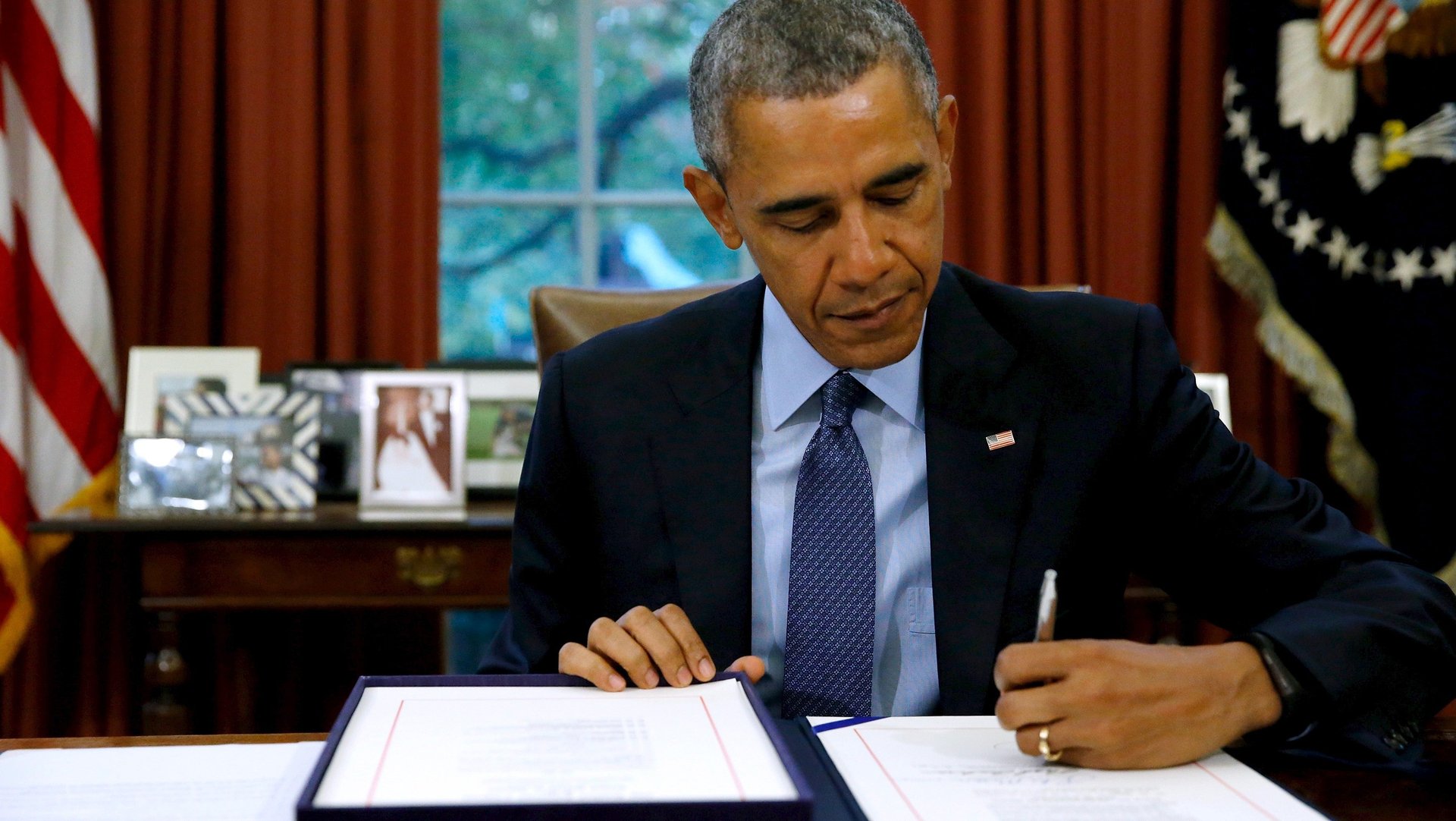Even US Republicans agree with Obama on this: Africa needs electricity
Bipartisan support for a bill is increasingly rare in the waning days of the Obama presidency. But last week both Democrats and Republicans signed off on the Electrify Africa Act, which Barack Obama signed into law on Feb. 10.


Bipartisan support for a bill is increasingly rare in the waning days of the Obama presidency. But last week both Democrats and Republicans signed off on the Electrify Africa Act, which Barack Obama signed into law on Feb. 10.
The act gives legal oomph to Obama’s key Africa initiative, Power Africa, a $7 billion project run by the US Agency for International Development. Its goal is to bring electricity to 50 million people in sub-Saharan Africa. Much of the focus is in rural areas, with the aim of helping ”lift impoverished African communities out of subsistence living.”
The plan turns on one statistic and one keyword.
The statistic: 600 million. That’s the number of people in sub-Saharan Africa—six out of ten—estimated to have no access to the electric grid, according to a McKinsey report a year ago. It doesn’t include the millions who live in cities with irregular electricity supply, sometimes in the dark for months on end, because electric grids and the governments that fund them haven’t kept pace with Africa’s rapid urbanization. The same McKinsey report estimates it would cost something like $830 billion to build enough grids to electrify all of Africa by 2030.
The keyword: ”Renewable.” As the great Fela Kuti once sang, Africa has an abundance of light and other renewable energy sources, but African governments haven’t been able to harness them efficiently. As we’ve written before at Quartz, however, attempts to solve this problem are moving the continent ahead in the renewables game. Solar power is advancing by leaps and bounds and attracting enthusiastic investors. As some of them wrote back in June:
Solar power is a technology not a fuel. Over time, fossil fuels become harder and more expensive to extract. But each incremental advance in solar technology makes it cheaper. In fact the dynamics of solar resemble the microchip industry more than the energy industry. Solar even has it’s own version of Moore’s Law. ‘Swanson’s law’ states that solar modules drop in price by 20% with every doubling of cumulative shipped volume.
There have also been a mix of innovative technologies and business models to make solar in particular a better bet for getting electricity to people—cheaper, safer and greener than any traditional grid.
But such toys need support from the West, particularly the US. This is where Electrify Africa could make a difference. Ed Royce, a Republican from California who chairs the House foreign affairs committee, says the act could help “[reduce] reliance on charcoal and other toxic fuel sources that produce fumes that kill more than HIV/AIDS and malaria combined.”
Power Africa’s goal is to double electricity access in sub-Saharan Africa over the next five years, through partnerships with private companies and African governments. Since 2013, deals have been signed which in theory would help reach a quarter of the initial goal of 10,000 megawatts of power. But few have come to fruition so far. The new law is expected to give Power Africa more power.